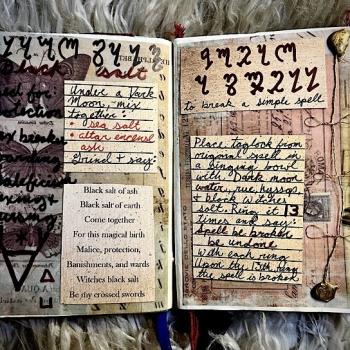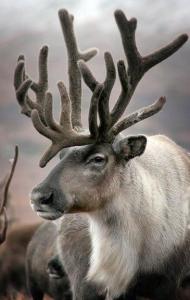Jason Pitzl-Waters at The Wild Hunt (which all Pagans should read every day) has a good piece on the “Alternative Right” – political conservatives who take their cues from philosophers like Friedrich Nietzsche and who include many Pagans, particularly followers of Asatru. The most notable example is Dan Halloran, the Pagan who was elected to the New York City Council as a Republican.
One of the interesting items Jason points out is the Alternative Right’s emphasis on “blood and soil” religions. Stephen McNallen of the Alternative Right website explains first-hand what that means:
They are innately tied to a specific people and cannot be transferred to another group without losing their truth, power, and integrity. Such religions are the distilled experience of a specific biological and cultural group from its very beginning. They spring from the soul of that people and from no other. They honor their ancestors, and not the ancestors of any other people.
Jason does a fine job of critiquing the politics of blood and soil. I’m not going get into that, except to say that I don’t agree with the underlying philosophy, and that while “creat[ing] a strong in-group” has its benefits, history shows that frequently degenerates into opposition to or outright oppression of “out-groups.”
My interest in this is the concept that certain religions and deities belong to certain ethnic/cultural groups and only to them. As a universalist and a UU who believes strongly in “wisdom from the world’s religions” this seems wrong. If there is value in the religions of, say, Asia, why shouldn’t I draw from them?
On the other side, there is the issue of “cultural appropriation.” For me, though, this is really two separate issues. One is the issue of dabbling: people who lift ceremonies and such out of their religious context. They never get the true, deeper meaning of them because they haven’t done the hard work to be able to understand them on a mystical level.
The second issue is sensitivity to groups that have historically been oppressed. I can understand the Cherokee or Sioux who says “you took our land and now you’re taking our sacred rituals?!” The solution there is to separate the spiritual techniques from elements of cultural identity, then to reground the universal techniques in your own culture (where you stand a much better chance of truly connecting to something).
But the fact that something feels wrong doesn’t make it wrong (although it’s usually a pretty good hint). Westerners in general and Americans in particular have made religion all about belief. It’s pretty easy to change your beliefs. It’s much harder to change your culture, and it’s impossible to change your ancestry. So if I’m going to argue against this, I need something more definite.
First, the idea of Americans harping about “blood and soil” religion seems a bit incongruous. We’re thousands of miles away from Germanic soil. And unless your parents or maybe your grandparents were immigrants, the odds on your blood being all or significantly all of one ethnic group are pretty long. As Bill Murray said about Americans in Stripes, “we’re mutts.”
More than that, though, this ignores the realities of human evolution. Humans split from chimpanzees about 5 million years ago. All humans have our deepest roots in Africa, and all non-Africans are descended from a small group (maybe 150 people) who left Africa about 50,000 years ago. Whatever differences in our blood and genes developed since then are miniscule compared to our similarities.
It also ignores the realities of human migration. Since those earliest explorers and migrants started moving north, then east and west, the history of humanity is the history of migrations and invasions. I live in Texas, but I was born in Tennessee. The ancestors in my family tree (i.e. – those who share my name) moved to Tennessee 150 years ago. Their ancestors came from Ireland, before that England, before that somewhere in the middle of Europe, before that somewhere in southwest Asia, and before that east Africa. Where should I draw the line on who is or isn’t my ancestor?
Finally, it ignores the reality of spiritual experience. I have met the gods of the Celts (or rather, I’ve met some of them). I have met the gods of Greece, and Rome, and Egypt. They don’t seem to be tied to blood and soil – why should I?
In our disconnected Western world, the lure of tribalism is strong. We form tribes around our families, our religions, our schools and sports teams. It brings a sense of belonging that we yearn for. That’s a good thing. But ultimately, we are all connected – we are all one tribe. We need not – and should not – lose our wonderful cultural diversity. But we cannot allow the love of our own tribe to degenerate into an ambivalence or an animosity towards other tribes.
We have advanced as a species because we have learned that working together achieves more than working separately. We have moved from working as individuals to working as families to working as tribes to working as nations. At each step, we’ve learned to develop “in-group” feelings toward a wider and wider variety of people.
The next step in the evolution of humanity is not to revert back to tribalism, it’s to extend those in-group feelings toward everyone and everything.
















